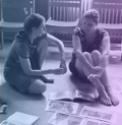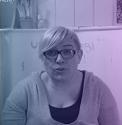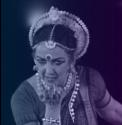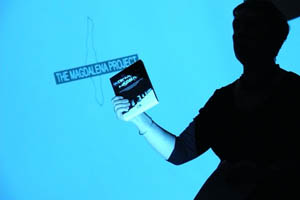 مگدلینا پروجیکٹ تھیٹر اور کارکردگی میں عورتوں کی شراکت کے بارے میں شعور اجاگر کرنے کے لئے پرعزم ہے ، اور پیشہ اور مطالعے میں ، زیادہ سے زیادہ عورتوں کو ٹھوس مواقع کی پیش کش کرکے تحقیق کرنے کے لئے پرعزم ہے۔
مگدلینا پروجیکٹ تھیٹر اور کارکردگی میں عورتوں کی شراکت کے بارے میں شعور اجاگر کرنے کے لئے پرعزم ہے ، اور پیشہ اور مطالعے میں ، زیادہ سے زیادہ عورتوں کو ٹھوس مواقع کی پیش کش کرکے تحقیق کرنے کے لئے پرعزم ہے۔
میگدالینا پروجیکٹ کے بارے میں یہ خیال 1983 میں اٹلی کے ٹریوینیانو میں ایک کیفے کی میز پر پیدا ہوا تھا۔ اگست 1986 میں ، 15 مختلف ممالک سے تعلق رکھنے والی 38 پیشہ ورعورتیں جوتھیٹر پریکٹیشنرز میگدالنا 1986 میں کارڈف (ویلز) میں تین ہفتوں تک ملاقات کی۔ عصری تھیٹر میں عورتوں کی یہ مگدلینا پروجیکٹ کی پیدائش تھی۔ 1986 اور 1999 کے درمیان ، اس منصوبے کا جل گرینہلغ کی فنکارانہ ہدایتکاری کے تحت کارڈف (ویلز) میں انتظامی اڈہ بنا دیا گیا۔ 5 براعظموں سے سینکڑوں آزاد عورت تھیٹر فنکاروں کو ان کی پرفارمنس اور کام کرنے کے طریقوں کو فروغ دینے اور ان کا اشتراک کرنے کے لئے مدعو کیا گیا۔ اس سارے عرصے کے دوران اور اس کے بعد سے ، اس پروجیکٹ نے ایک انوکھا افقی ڈھانچہ تیار کیا ہے جس نے اسے بین الاقوامی سطح پر کام کرنے کے قابل بنایا ہے ، اور مگدالینا پروجیکٹ کے نام اور تاریخ کے لئے پوری دنیا کی خواتین اپنا کر اپنا اور بڑھاوا دیتی ہیں۔
مگدلینا کے نام سے منعقدہ پروگراموں کے بارے میں معلومات کے لئے ، براہ کرم اس ویب سائٹ پر محفوظ شدہ دستاویزات ملاحظہ کریں؛ایسی متعدد کتابیں اور مضامین بھی ہیں جو کہانی کے مختلف حصوں کو دستاویز کرتے ہیں۔ یہ اشاعت کے حصے میں پایا جاسکتا ہے۔
ایک دستاویزی فلم ، "مگدالینا" ، جس میں جل گرینہلغ اور سارہ پینرین جونز (2013) کو یہاں دیکھا جاسکتا ہے۔
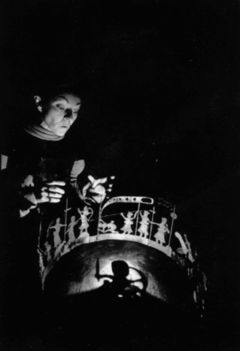 The issues
The issues
So much women's art has been left unrecorded, leaving few precedents with which to compare work. The tide has, of course, turned and feminist theories of creativity have been rapidly emerging in the last twenty-five years. However, the struggle of women in theatre is still couched very much in terms of winning a place within existing structures rather than in questioning the function of those structures. The Project has challenged this situation and encouraged women to examine their role in the future of theatre in more depth. Through looking at existing work by women, by sharing methodologies, by examining form as well as content or by making new material, the Project has been trying, practically, to reveal recurrent themes, vocabularies and images. Perhaps it's possible to begin to identify a theatre that has universal resonance for women - perhaps not - the work of the Project is to find out. The Project aims to provoke the organisation of opportunities for women to explore new approaches to theatre-making that reflect, more profoundly, their own experiences and political priorities.
The Magdalena Project has:
- hosted hundreds of international performances and women artists at festivals and workshops since 1986 (see the ../../en/content/archive);
-
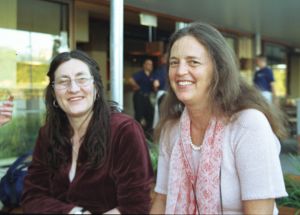 produced a newsletter that ran to 28 issues;
produced a newsletter that ran to 28 issues; - published and disseminated 13 annual issues of The Open Page;
- published books about the Magdalena Project and its activities;
- collaborated in organising women's theatre events and festivals worldwide;
- presented the Magdalena at conferences world-wide;
- produced three full scale touring productions and initiated, supported and promoted many others;
- established an accessible Research Archive of material relating to women and performance;
- lost count of the academic theses that have focused on the Project.
The project has a wide international network and is always glad to hear from those interested to interact: click here to contact the Magdalena Project.

